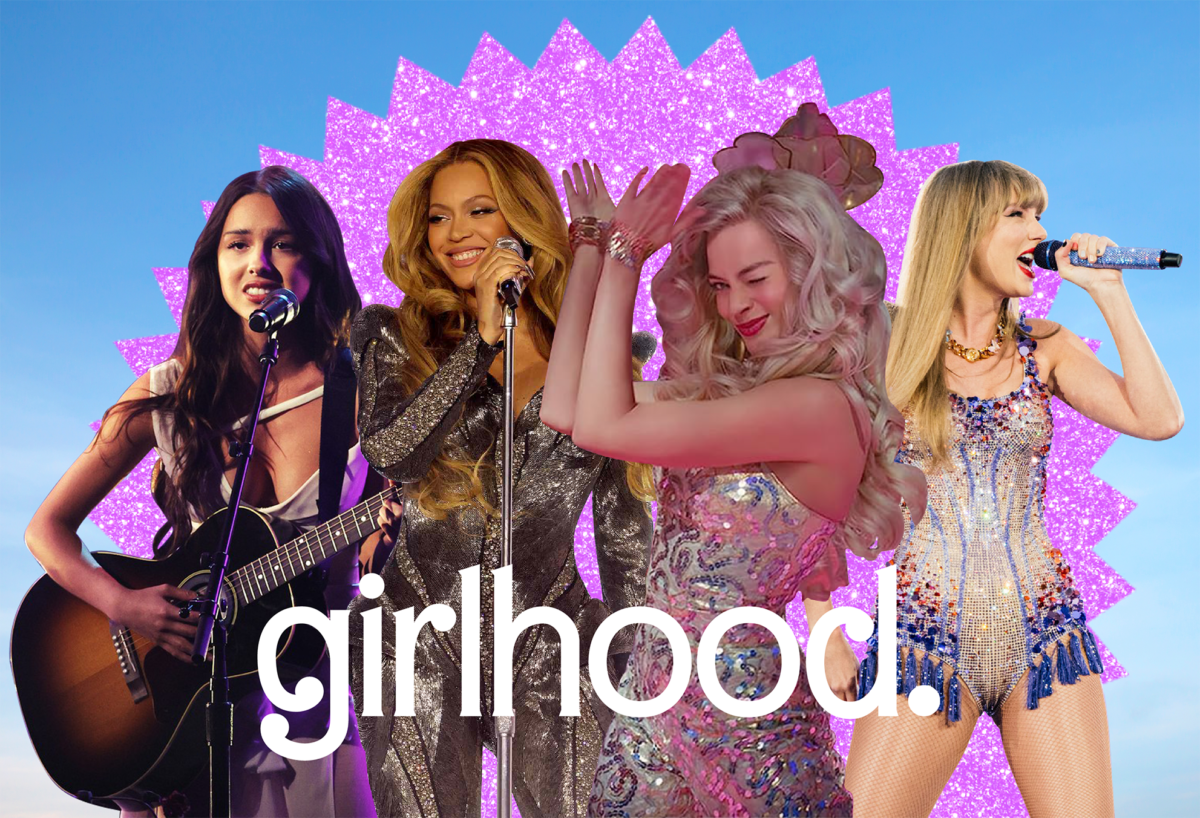In a year where women have taken the spotlight in film and music, a few female icons are breaking records, reshaping the narrative and empowering women.
The raw honesty of “Barbie” and Olivia Rodrigo’s sophomore album “GUTS,” matched with the unwavering forces of Taylor Swift and Beyoncé have sparked conversation, challenged stereotypes and provided necessary space for women to be authentic.
These powerful women are truly changing the game of the entertainment industry.
Swift and Beyoncé have taken over the concert scene over the past year and made a huge impact on social media and pop culture, but the tours are more than just a phenomenon.
“The Eras Tour” is projected to earn Swift well over a billion dollars, but she’s not just generating her own wealth. Forbes says that Swift could earn over $4 billion for local economies. This tour’s success highlights what a vital role women play in shaping creative industries and stands as testament to how women contribute to artistic innovation and economic prosperity.
The “Renaissance World Tour” circulated social media every day during its run and also has been a main topic in the entertainment industry. The album itself created discussion about the Black and queer pioneers in the music industry that Beyoncé was inspired by, and the tour is giving that conversation an even larger platform.
Both tours have considerably impacted women and young girls around the world. I think that there is something so special and vulnerable about music, especially seeing live music surrounded by others. Having the chance to be with thousands of other women listening to music made by such powerful female icons is important. Swift and Beyoncé have created spaces for women to just be themselves without any scrutiny.
“Barbie” was the movie of the summer and took over every social media platform from the time its very first posters were released. It illustrated some of the realities of being a woman that are often ignored, like double standards and insecurities.
America Ferrera, who played Gloria in the film, had a monologue that I think captured those issues perfectly.
“You’re supposed to stay pretty for men, but not so pretty that you tempt them too much … But always stand out and always be grateful,” Ferrera said in the film. “I’m just so tired of watching myself and every single other woman tie herself into knots so that people will like us.”
Ferrara’s character also explains how impossible it can feel as a woman constantly trying to please others. A blockbuster movie having these themes has the power to truly shift the way that people think. After all, the media does shape us as people.
“Barbie” shifted the way that I view being a woman. There are a lot of emotions that are difficult to put into words, but the movie illustrated those feelings beautifully. It tells women that they aren’t alone in what they feel and that it’s okay to do something just for yourself, not to make others happy.
Another example of media illustrating the reality of being a woman is Rodrigo’s sophomore album “GUTS,” which dives into the life and mind of a teenage girl.
Her lyrics focus on the insecurities and double standards that women are met with. Through her sarcastic tone and biting lyrics, she criticizes the idea that women should always be kind, grateful and attractive.
She sings about the fact that regardless of how pretty a woman is, society will say that it isn’t enough. Rodrigo vocalizes the neverending comparisons made between women and constant insecurities.
It’s about more than just the music or the movies. The discussion that these forms of media have created are helping other women realize that they aren’t alone in their emotions. Simply seeing that someone understands how you feel can be a true relief, and I think that these women and this year have changed the way society views women and the way women view themselves.
It’s important to see media that you can relate to and be inspired by, and for women it can be difficult to find accurate portrayals of common issues. I’m pleased by this year’s representation so far, and I’m optimistic about the future of women in the music and film industries.
I hope that the ability to relate to media sticks and that we can continue to see more accurate depictions of the highs and lows of being a woman.





























































































































































